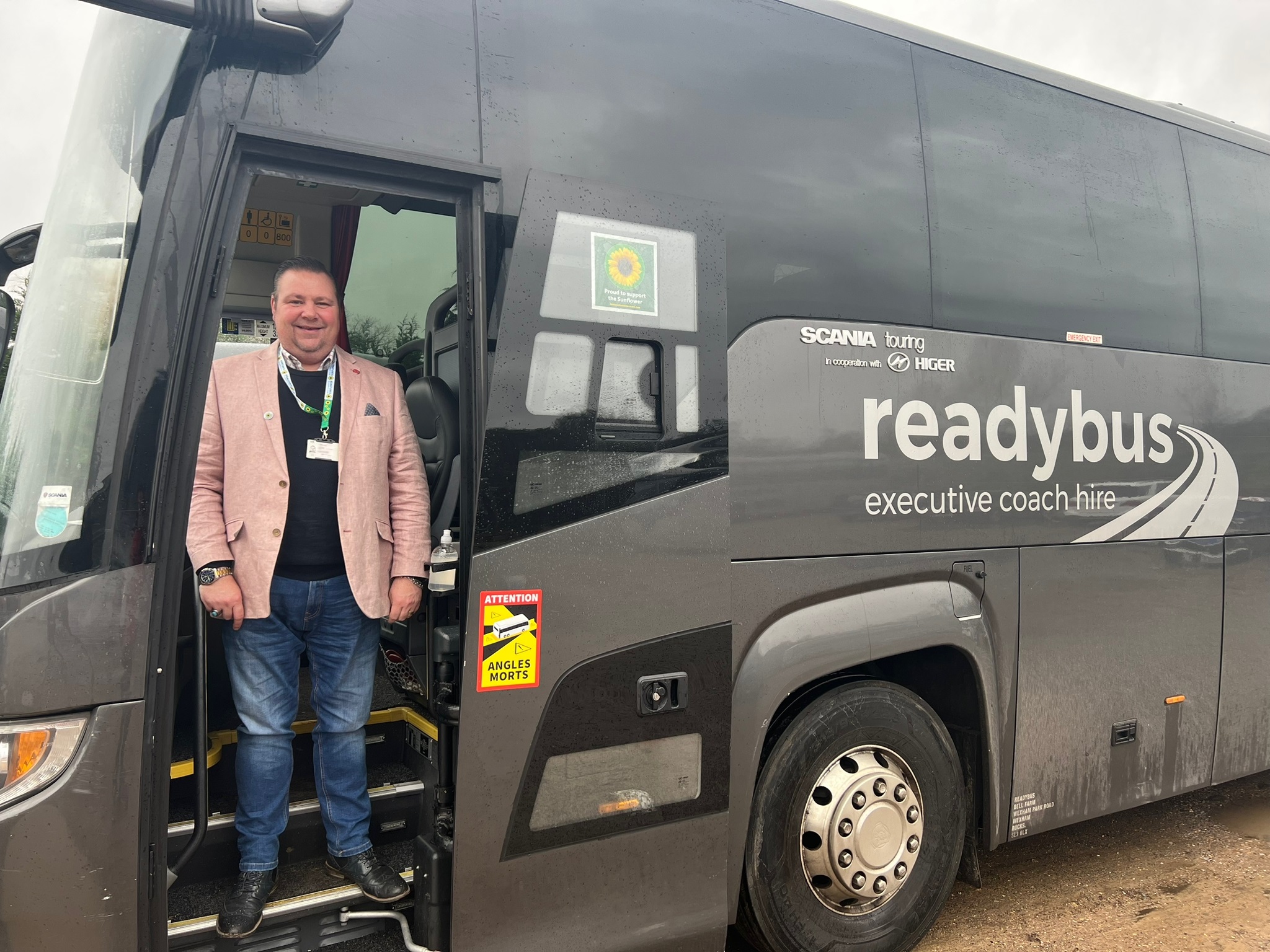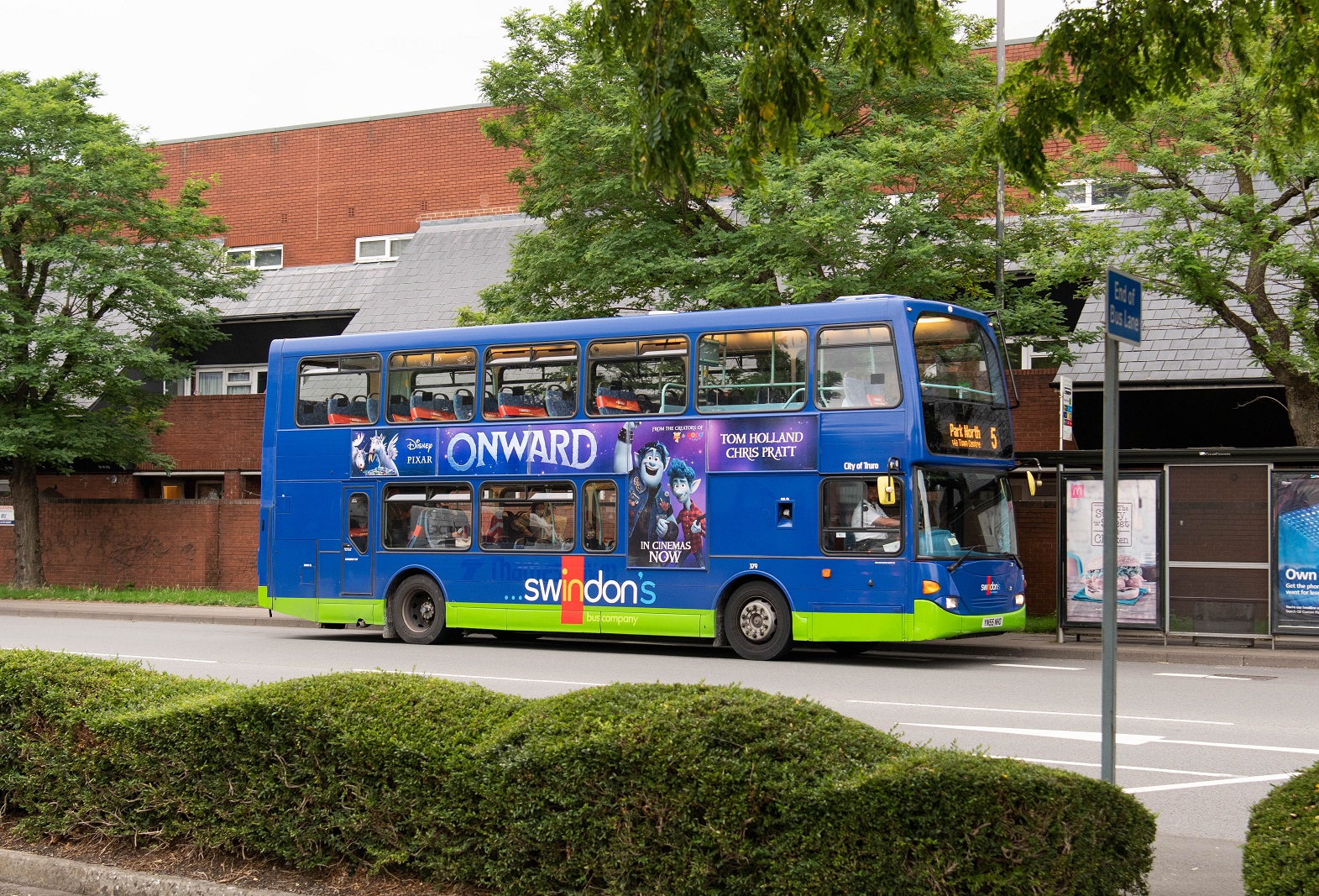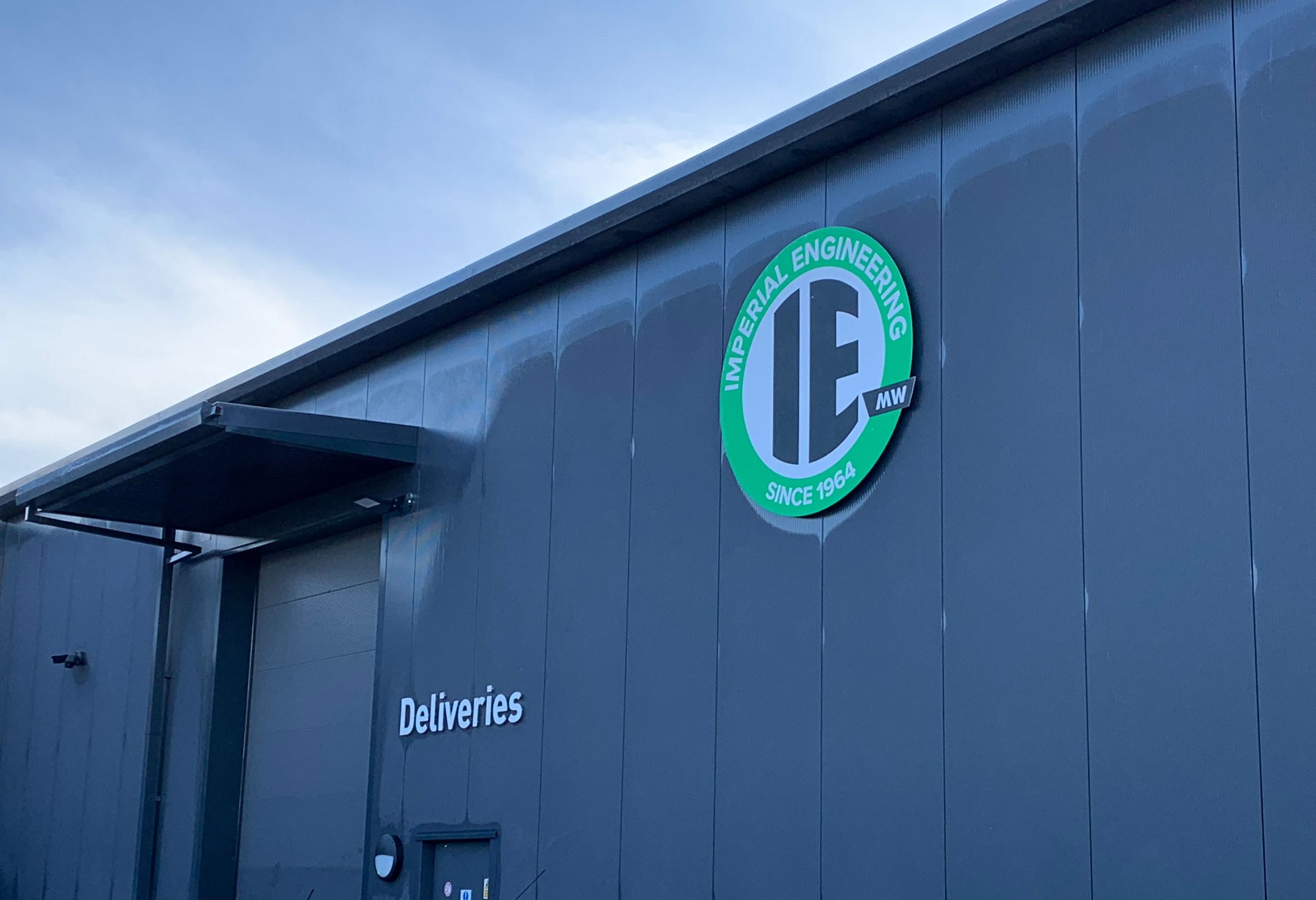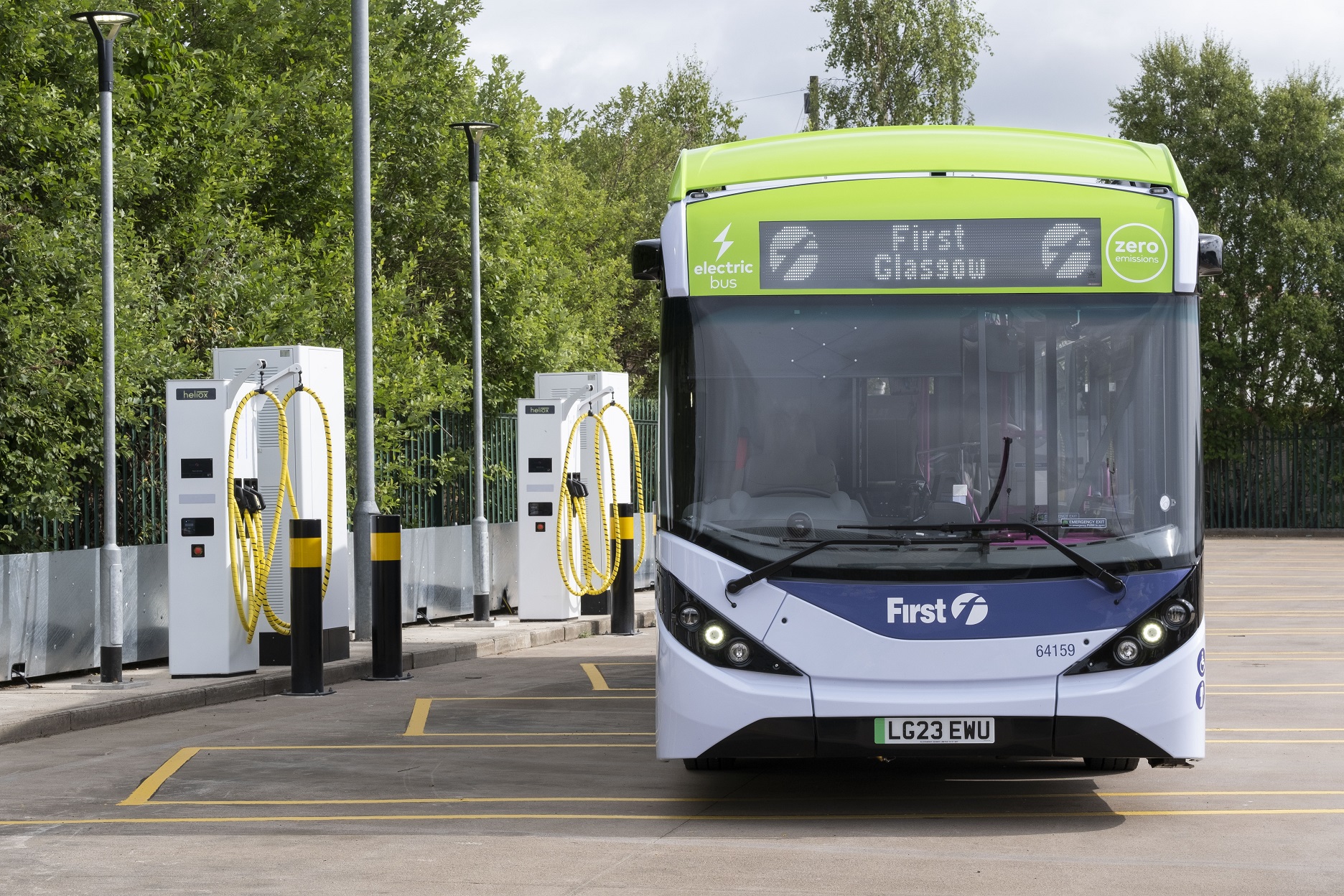Coach operator Readybus has joined the global Hidden Disabilities Sunflower network. That will see sunflower signs displayed on each of its 64 vehicles and all drivers undergo training to ensure that they can help any passenger with an invisible disability feel safe and assured while traveling.
The Slough operator employs several staff with hidden disabilities, including driver Steve Newman and scheduler Darryl Crick (pictured), who has two autistic daughters. Co-owner Matt Clayson says that a further contributor to his decision to join the Hidden Disability Sunflower network was the difficulty that his own autistic son has in coping with everyday life.
Adds Mr Clayson: “Our son cannot travel to school on the transport provided because of a traumatic experience a few years ago with a driver who did not understand how autism impacts him.
“It has meant that we have been initiating various measures with drivers to ensure that they are aware of people like our son and others who may need a little bit of reassurance. As we transport thousands of children every day on our coaches, it is vital that those that have autism, anxiety or any other hidden disability can feel safe and secure when travelling to and from school.”
It is anticipated that by participating in the Sunflower network, Readybus will help tens of thousands of children and adults with non-visible disabilities, including autism and ADHD among many others, to be subtly visible when they choose to be.
Mr Crick and Mr Newman have welcomed the decision by Readybus to join the Sunflower network. Both are already supported by the operator. “Being part of the Sunflower scheme means that we can be visible to more people in our support for hidden disabilities, and that means a huge amount to my daughters’ welfare,” says Mr Crick.
Hidden Disabilities Sunflower CEO Paul White has welcomed Readybus to the network. “Becoming a member of Sunflower means that Readybus will have the tools to recognise and support individuals with non-visible disabilities, and its drivers to become confident in providing Sunflower wearers with additional help or assistance,” says Mr White.
“This could simply mean giving them more time to prepare or process information, so using clear verbal language. All this support helps those with an invisible disability to feel confident in their environment and reduce stress levels.”


























